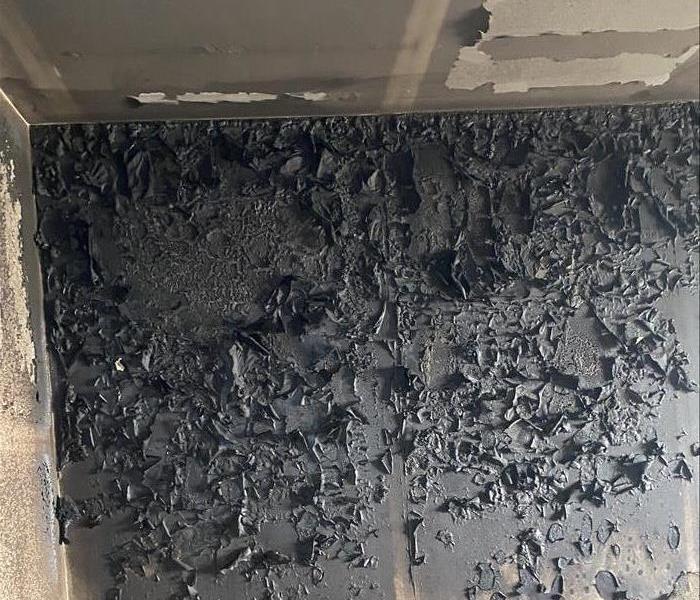Protecting Rental Properties: Our Guide to Fire Hazard Prevention
11/23/2023 (Permalink)
At SERVPRO, we understand the importance of safeguarding rental properties from fire hazards to ensure the safety of tenants and protect property investments. Fire hazards pose a significant risk to both the physical structure and the well-being of occupants. In this blog post, we want to share our insights and offer valuable tips on how to protect rental properties from fire hazards. Your tenants' safety and the preservation of your property are our top priorities.
1. Install Smoke Alarms and Carbon Monoxide Detectors:
One of the first lines of defense against fires is the installation of smoke alarms and carbon monoxide detectors in all rental units. These devices provide early warnings in case of fire or the presence of deadly carbon monoxide gas. Here are some key considerations:
- Ensure smoke alarms and carbon monoxide detectors are installed in accordance with local building codes.
- Regularly test and replace batteries in these devices to ensure they remain operational.
- Include instructions for testing and maintaining detectors in the lease agreement.
2. Fire-Resistant Building Materials:
Consider using fire-resistant building materials and features in the construction or renovation of rental properties. This can help slow down the spread of fire and limit damage. Fire-resistant materials include fire-rated drywall, doors, and insulation.
3. Create Clear Fire Escape Plans:
Provide tenants with clear fire escape plans that detail the safest routes and meeting points in case of a fire emergency. Encourage tenants to practice fire drills so they are familiar with the escape routes.
4. Maintain Heating and Electrical Systems:
Regular maintenance of heating and electrical systems is essential to prevent fire hazards. Schedule annual inspections of heating equipment and electrical systems, and address any issues promptly.
5. Educate Tenants on Fire Safety:
Educate your tenants about fire safety measures and procedures. Provide them with information on how to use fire extinguishers, escape routes, and the importance of not overloading electrical outlets.
6. Fire Extinguishers and Fire Suppression Systems:
Install fire extinguishers in common areas and kitchen spaces within rental properties. Additionally, consider installing fire suppression systems, especially in kitchens and laundry rooms.
7. Kitchen Safety:
Kitchens are a common source of fires in rental properties. To prevent kitchen fires:
- Ensure stovetops and ovens are in good working condition.
- Install and maintain exhaust hoods over cooking areas.
- Prohibit the use of deep fryers or other high-risk cooking appliances in rental units.
8. No Smoking Policies:
Consider implementing a no-smoking policy inside rental units. Smoking-related fires can be a significant hazard. If you allow smoking, provide designated outdoor smoking areas with safe disposal containers.
9. Regular Inspections:
Conduct regular inspections of rental properties to identify and address potential fire hazards. This includes checking for faulty wiring, blocked fire exits, and any signs of tenant behavior that may increase fire risks.
10. Secure Outdoor Areas:
Outdoor areas should also be considered. Remove dead trees, dry grass, and other combustible materials from the property's vicinity. Properly store flammable materials away from buildings.
11. Fire-Resistant Landscaping:
Consider using fire-resistant landscaping features, such as fire-resistant plants and non-combustible mulch, to create a defensible space around rental properties.
12. Insurance:
Ensure you have the appropriate insurance coverage for your rental properties, including coverage for fire damage. Review your insurance policies periodically to make sure they are up to date and provide adequate protection.
By implementing these fire hazard prevention measures in your rental properties, you can help protect both your investment and the safety of your tenants. Additionally, promoting fire safety awareness and providing clear guidance to your tenants can significantly reduce the risk of fire-related incidents. At SERVPRO, we are committed to helping you maintain safe and well-protected rental properties. If a fire-related incident does occur, our experts are here to assist with fire damage restoration, ensuring a swift and thorough recovery process. Your tenants' well-being and the preservation of your rental properties are of utmost importance to us.

 24/7 Emergency Service
24/7 Emergency Service
